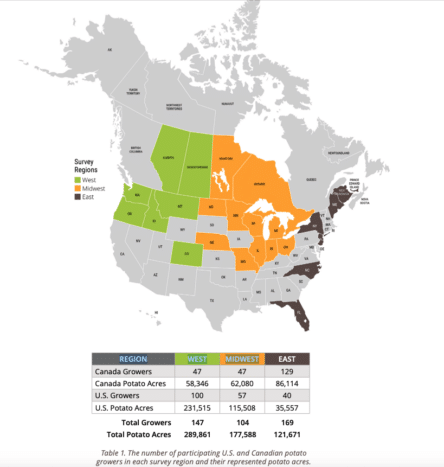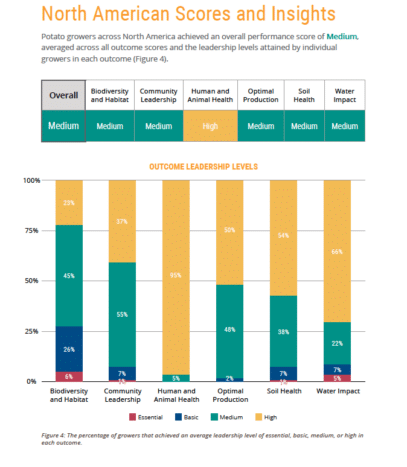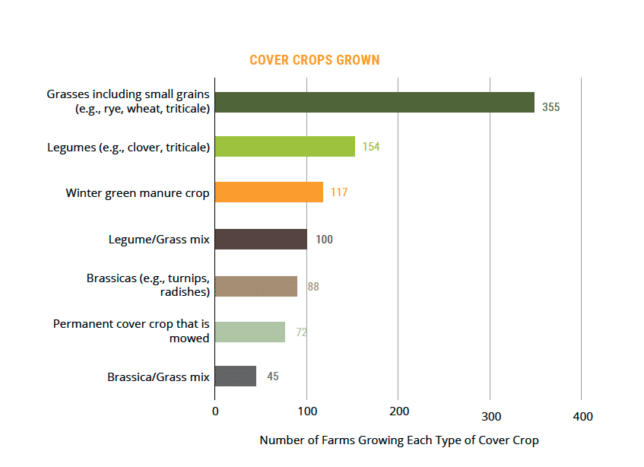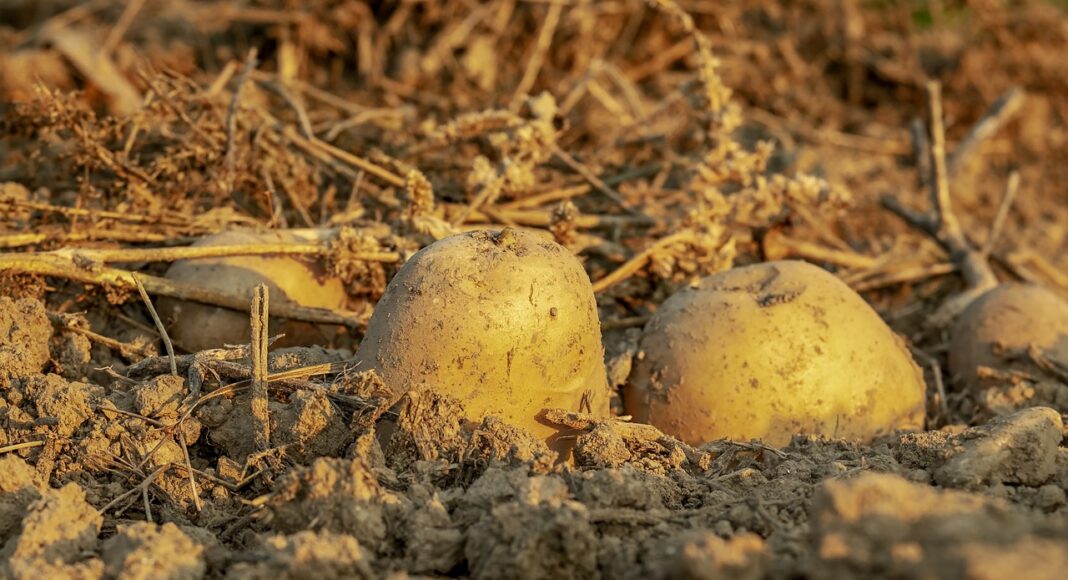The Potato Sustainability Alliance (PSA) released their 2023 North American Potato Sustainability Report. The report outlines sustainability results and insights from the annual on-farm assessment of the PSA Program in North America. It offers PSA members and participating growers a significant benchmark to assess their own progress.
“In 2023, a total of 420 growers, representing 589,120 potato acres across the U.S. and Canada participated in the PSA Program by completing the Sustainable Outcomes in Agriculture (SOA) Standard through the CropwiseTM Sustainability (CWS) app and selecting PSA as their sustainability partner,” stated the report.
Growers were encouraged to participate in the self-assessment between Aug. 15 and Nov. 15, allowing them to gain community insights and facilitate the sharing of data.

“Participating growers achieved an overall performance score of Medium,” the report stated. “This score reflects the collective adoption of various management practices contributing to sustainable production that are informed by data collected and experts. Additionally, it signifies the adoption of new practices and technologies that are consistent with improving the industry standard.”
The report noted potato growers throughout North America achieved a Medium overall performance score, calculated by averaging all outcome scores and considering the leadership levels attained by individual growers in each outcome.

Where growers scored High was in Human and Animal Health. “This score reflects the adoption of beneficial management practices that encompass product selection, worker and neighbor protections, pest related health management, waste management, and hazardous material management,” the report stated. “Performance insights and opportunities for improvement identified in this outcome will be used to inform PSA Program activities in the IPM, water stewardship and soil health focus areas.”
In terms of cover crops grown, the majority of respondents are growing grasses, including small grains while the lowest cited a brassica/grass mix.

Over the last decade, the PSA has been conducting an annual sustainability survey involving more than 500 potato growers across the United States and Canada. The information gathered from this survey is consolidated from all participating growers and segmented by different geographical areas. It aids in developing PSA’s comprehensive industry reports on nitrogen utilization efficiency, irrigation efficiency, greenhouse gas emissions, pesticide exposure risk, worker safety, and waste management/recycling.
Fast Facts from the Repot:
- 43% of growers actively maintain or restore cropped and uncropped areas on the farm to improve the quality of habitat for biodiversity.
- 23% of growers established new habitat or improved the quality of habitat for pollinators in the past three years.
- 49% of growers participate in local community events, support local business and/or make financial contributions to the community associated with the farm.
- 37% of growers have incorporated new ways to share farming, conservation and restoration initiatives for species and habitat in the past three years.
- 99% of growers actively communicate in response to questions/complaints concerning operations and product selection (e.g., drift, dust, odor, visual PPE).
- 56% of growers conduct residue and health risk testing and/or audits and share results with supply chain partners, and others.
- 95% of growers have contracts in place to market crops to minimize harvest loss, processing loss, and storage losses of crop.
- 93% of growers customize their crop plans based on previous year’s data to support multi-year plans to optimize yield, stability, and quality.
- 75% of growers participate in projects that support and measure nutrient management for soil health.
- 49% of growers adopted a new practice to reduce tillage and compaction at the field level in the past three years.
- 91% of growers that irrigate use a crop production irrigation plan that has been optimized over time to consider long-term water availability and challenges in the area.
- 54% of growers collaborate with others in their area on watershed or aquifer initiatives to improve water quality.











